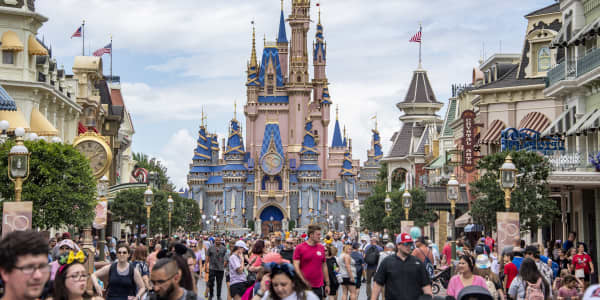1. Dow set to fall on first day of June
Dow futures reversed gains and pointed to a lower open Monday as violent protests in major cities over racial inequality and police brutality added to the uncertainty caused by the coronavirus pandemic. The Dow Jones Industrial Average closed a wild week down 17 points on Friday. The Dow gained 3.75% for the week and was 14% below its February record. The S&P 500 saw a small gain Friday and a 3% weekly rise. The index was about 10% below its February all-time high. The Nasdaq had the strongest Friday gain for a 1.8% weekly advance. The Nasdaq was just 3.5% away from its February record. All three stock measures logged strong gains for May ahead of the first trading day in June.
Investors took solace that President Donald Trump did not announce any changes in the U.S.-China trade agreement at his Friday news conference. However, he did say he would take action to eliminate special treatment toward Hong Kong due to China's intent to impose a national security law in the semi-autonomous territory. The proposed law is seen as eroding freedoms that Beijing promised to keep for 50 years in the 1997 handover from Britain. China has pointed to the protests in the U.S. as a reason it wants to keep those in Hong Kong from getting out of control again.
2. Protests over racial inequality and police brutality erupt nationwide
America enters the new week with neighborhoods in shambles, city streets on lockdown and confidence shaken by protests following last week's killing of George Floyd during an arrest in Minneapolis. Raw emotion over police killings of black people hit a breaking point. All of it erupted into a nation already hurt by a death toll that surged past 100,000 from the coronavirus and unemployment that soared to levels not seen since the Great Depression. Arrests from demonstrations in cities from from Philadelphia to Los Angeles have topped 4,400 according to an Associated Press tally. Derek Chauvin, the fired white Minneapolis police officer filmed kneeling on Floyd's neck for nearly nine minutes, was arrested and charged with third-degree murder and second-degree manslaughter.
3. Target, Apple,and Whole Foods temporarily closing stores due unrest
Major retailers across the nation are temporarily closing their stores in areas hardest hit by the unrest. Target, Apple and Amazon-owned Whole Foods are among the retailers that announced they would shutter locations temporarily or adjust store hours around citywide curfews. Some Apple, Target and Whole Foods stores were damaged by looting. The protests are likely to set back some retailers' plans to get back to businesses as many states were starting to lift their coronavirus mitigation restrictions.
4. Health officials fear that protests will spread coronavirus
This weekend's mass demonstrations raised health officials' concerns about the risk of spikes in coronavirus infections. It's unclear if the protests themselves would trigger new outbreaks since they were outside, where infections don't spread as readily as indoors. However, health officials fear that carriers of the virus who have no symptoms could unwittingly infect others at large gatherings. Minneapolis Mayor Jacob Frey echoed those concerns over the weekend: "We have two crises that are sandwiched on top of one other." Days earlier, the Minnesota health commissioner warned that massive demonstrations were almost certain to fuel new Covid-19 cases.
5. Russia claims to have an effective Covid-19 treatment
Russia claims to have an effective treatment for the coronavirus, which hospitals there will start using this month. Russian health officials have approved anti-influenza drug avifavir to treat Covid-19 after preliminary trials appeared to show that it could shorten recovery times. The final stage of avifavir clinical trials involving 330 patients are ongoing. "We believe there are now only two antiviral drugs against the virus that are really effective," said Kirill Dmitriev, CEO of Russia's sovereign wealth fund, which is providing funding for avifavir's testing on coronavirus. He noted on CNBC on Monday that Gilead Sciences' remdesivir in the U.S. is the other Covid-19 treatment showing promise. Eli Lilly also began testing a Covid-19 experimental treatment derived from the blood of a survivor of the disease.
— The Associated Press and Reuters contributed to this report. Follow all the developments on Wall Street in real-time with CNBC's live markets blog. Get the latest on the pandemic with our coronavirus blog.





